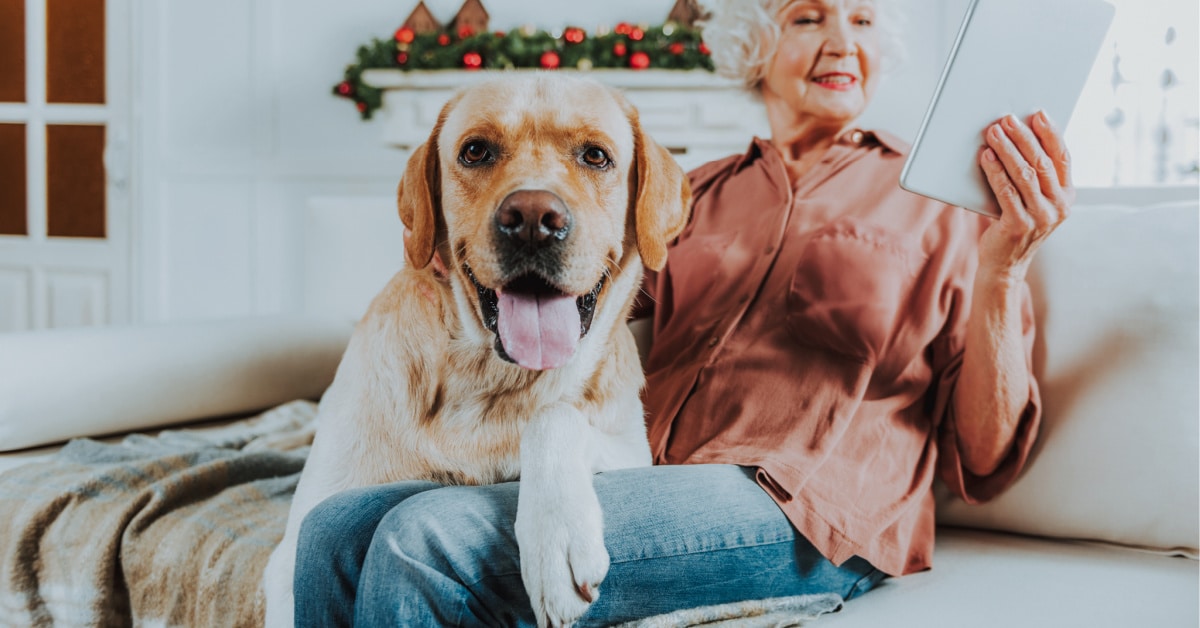“When do Labs mature and become fully grown adults?” is a question that often comes to many pet owners’ minds after spending quite some time living with their Labradors.
While Labrador Retrievers obviously have endearing traits that have made them one of the most popular dog breeds for decades, many are not aware that it can actually take some time before Labradors can reach that point where they become absolutely wonderful canine companions.
So, here is everything you need to know about when do Labs mentally mature, when can you consider them fully grown, when do Labrador Retrievers sexually mature, and more.
Let’s take a look.
When will my Labrador mature?
A great number of experts consider a Lab to be fully grown by the time they turn 18 months old. However, not all Labradors will develop at the same pace.
Some Labradors are late bloomers and will take between 18-24 months old before they mature.
On the other hand, other Labs may also fully physically mature when they are 2-3 years old. Most Labradors will be mentally mature when they are 3-4 years old.
Labradors mature slowly
Labradors mature more slowly than other smaller breeds.
Most small and medium-sized breeds will mature when they are 9-12 months old. However, the Labrador is a big dog, and larger breeds mature slowly. Therefore, a 1-year old Lab will still exhibit a lot of childlike behavior compared to a 1-year old toy Poodle.
Signs of a mature Labrador
There are clear signals that your Lab has become mature. Here are some common signs you can expect:
1) You Lab is slowing down.
Lab puppies are high-energy and find excitement in nearly everything. However, mature Labradors will be calmer and reserved. They may not jump as much for things they enjoy, but they will exhibit it in other ways.
For instance, they will quickly run to you if you pick up their leash or ball instead of jumping and barking.
However, even if they do not want to play as much as they used to, that does not mean they do not need to exercise anymore.
Labradors are prone to obesity and joint problems, which is why they need at least 1-2 hours of exercise every day through walks, playtime, and other activities.
2) Your Labrador exhibits more self-control.
When your pup was young and still learning, they may not be able to resist temptation. They would possibly often try to steal food or disobey you.
However, when your Labs mature, they often know what the rules are, especially when they have been properly trained. They will be less tempted to follow their impulses.
3) Your Labrador Retriever has more patience.
Contrary to adult Labs that are generally more patient, puppies often cannot hold their excitement and will be hyper when they want to do something.
4) A new double coat of fur will replace your Lab’s baby fur.
When Labradors are young puppies, they will have very soft coats of fur. However, that fur will begin to shed when they are 3-5 months old.
Their new double coat of fur will replace their baby fur. By the time they are 6-7 months old, your Lab may have thicker, slightly coarse fur.
5) Your Labrador will have no more baby teeth.
Like humans, dogs also lose their baby teeth to make way for their new adult teeth.
Labrador baby teeth will fall out when they are 14-30 weeks old. They usually have all their adult teeth when they are 6-8 months old, but it may also depend on your Lab’s development.
6) Your Labrador Retriever will exhibit less destructive behavior.
As mentioned earlier, your pup will start to calm down as they mature. It also means that they will be less likely to engage in destructive behavior. They will not bite furniture or dig holes as much as they would when they were pups.
7) Your Lab stops growing.
A very clear sign that your Labrador is mature is when they stop growing. Most Labs will stop growing when they are 18-24 months old. By that time, they will be physically mature.
8) Your Lab tends to eat less.
Labradors are generally very hungry dogs, but they will slow down on how much they eat as they age. Puppies are hungrier than adult dogs because their body needs more calories to grow. However, their body will require less since they are done developing.
At what age do Labradors become mature?
Most Labradors will become seniors when they are 7-10 years old. Since they have shorter life spans than other smaller breeders, they will become seniors faster.
Senior Labrador dog behavior

Some signs that your Labrador is a senior include the following:
- Sleeps more frequently.
- Your Lab may have a smaller appetite.
- Your Lab may be less inclined to participate in physical activity for long periods.
Tips for giving care for when your Labs do mature
If your Labrador is a senior, here are some tips that can help you properly take care of them:
1) Frequent, short walks
Your senior Lab will not have the same energy they used to have. However, exercise is still important because it can prevent many health issues.
You can let them take shorter, more frequent walks throughout the day. About 3-4 10-15 minutes walks a day should be good for most elderly Labs.
2) Make their bed more comfortable
Your Labs will want to rest more often now that they have matured. They may also feel like their joints and bones ache, so it would be ideal to make sure their bed is as comfortable as possible.
Put their bed in a quiet space where they feel safe. You can also add extra padding, pillows, or blankets to their beds to cushion their joints and give them a better night’s rest.
3) Add ramps
If parts of your home like the front porch have steps, your old Lab may find it difficult to walk up them because of their joints. You can add ramps to shorter sets of stairs to help your dog easily climb up them.
As much as possible, try to keep all your Labradors items on one floor so they do not have to move around too much. If you cannot add a ramp, you may have to carry your senior Lab up the steps.
4) Raised feeders
A senior Labrador may find it hard to stretch their necks downward to reach their food bowls. You can make it easier for them to eat by getting a raised feeder or putting their bowls on a short stool or table.
However, it may not be ideal for fast eaters because it can encourage them to eat faster. You can use slow feeding bowls if that is the case so that your senior Lab can comfortably and slowly eat.
Your Labrador puppy will become an adult then senior before you know it! That is why you need to prepare yourself and be armed with the knowledge about when your Labs do mature and other tips involving giving them care.







